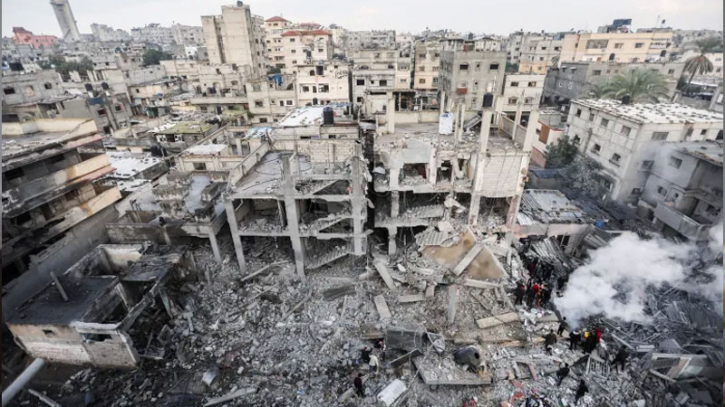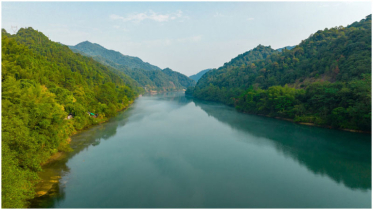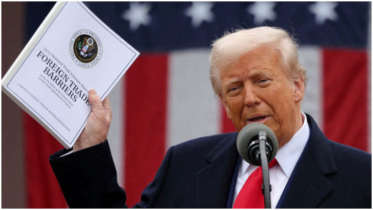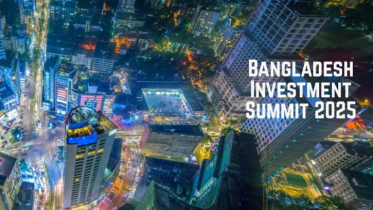Gaza aggression, US police brutality and Bangladeshi voice of conscience

It beggars belief how things could have got this bad in Gaza. Over a span of only seven months, after the Israeli military aggression was launched on 7 October 2023, about 34,622 people have been killed; 77,867 injured; 60% of the infrastructure has been destroyed or damaged; and 85% of the territory’s population have been pushed into internal displacement resulting in a desperate shortage of food, drinking water and medicine, and that is a conservative estimate. The real figures must be higher.
This premeditated Israeli aggression has raised a storm of protest across the globe, including the United States. More than a geopolitical issue, it has become a moral concern that resonates with people worldwide.
Protests in the US culminated in the self-immolation of the uniformed US airman Aaron Bushnell, who burned himself to death in protest against the US’s role in Israel’s military strikes in Gaza.
Dousing himself in a flammable liquid, he set himself alight in front of the Israeli embassy in Washington DC, and died declaring that he would no longer be complicit in genocide and shouting repeatedly “Free Palestine”. Aron’s episode is a slap in the face of the US bid for aiding and abetting what Aaron calls genocide against the Gazans.
Hence, the US government is allowing no latitude for protest against Israeli aggression in Gaza much as they talk about freedom of speech. In recent weeks, the US police have detained nearly 2,200 people from pro-Palestinian rallies at different college campuses across the United States.
Though the protest rallies were being held peacefully, the police response was very aggressive. They were seen using riot gear, tactical vehicles and flash-bang devices to disperse the protesters. It is ironic that while countries like Bangladesh have recourse to similar steps to control even the angrier mob of demonstrators, they are accused of human rights violations.
Bangladesh’s Prime Minister Sheikh Hasina is one of the most outspoken critics of the US double standard. On 30 April 2024, while making the inaugural speech at the Awami League Central Working Committee meeting held at the Ganabhaban, she slammed the US police action against university students and teachers who took to the streets in peaceful protest against Israeli genocide in Palestine.
She argued that though the demonstrating students and teachers did not have anything like torches or sticks in their hands, the police's behaviour with them was very unbecoming which remains the soft underbelly of the US human rights condition. The Bangladeshi Premier also referred to how absolutely disgracefully the female professor was manhandled by the cops. She raised the question as to how the US women enjoy their lives as of right.
Not only did Sheikh Hasina voice concern about human rights conditions in the USA but there are many other sources that testify to human rights abuse in the US.
According to the reports of The Guardian and BBC, there are numerous cases of gross human rights violations in the USA. The way George Floyd, the 46-year-old black man was murdered in broad daylight by a white police officer, Derek Chauvin was horrifying. I would not be surprised if the police action against the on-going pro-Palestine demonstrations in the US campuses gives birth to similar George Floyd incidents.
Bangladesh, under Sheikh Hasina's premiership, has expressed its solidarity with the Palestinian people during times of crisis. She considers Israeli barbarity in the Gaza Strip as genocide and calls upon the world leaders to stop it. Whenever she goes abroad, she makes her official protests against the genocide and urges all world leaders to stop the war.
In the face of recent escalations in violence, she condemned the disproportionate use of force and civilian casualties. She reiterated the importance of a just and lasting solution to the conflict, emphasising the need for international support to achieve this goal.
Bangladesh’s support for Palestine is not only a foreign policy matter; it is a reflection of Bangabandhu’s legacy of supporting the oppressed and advocating for justice.
Sheikh Hasina’s government remains committed to this cause, making it clear that Bangladesh’s support for Palestine is not just a goodwill gesture but an enduring commitment to the rights and aspirations of the Palestinian people. Bangladesh’s unwavering support for Palestine, reaffirmed by Prime Minister Sheikh Hasina, reflects the country’s dedication to global peace, justice and human rights.
Sheikh Hasina has also strongly condemned the incidents of human rights violations of Bangladeshi citizens in the United States, and sought answers from human rights organisations. She has deeply resented the recent killings of several Bangladeshis in the United States.
She has raised the question as to why Bangladeshi people should drop like flies in police brutalities in a country that claims to be a champion of human rights. Even small children are not spared. Keeping all the track of incidents of gross human rights violations, how can they be so critical of human rights situations in other countries? Why is this double standard? Sheikh Hasina raises a voice of conscience against it.
The writer is a distinguished academic and the former Vice Chancellor of Islamic University Bangladesh.
Source: Daily Sun.
.png)




